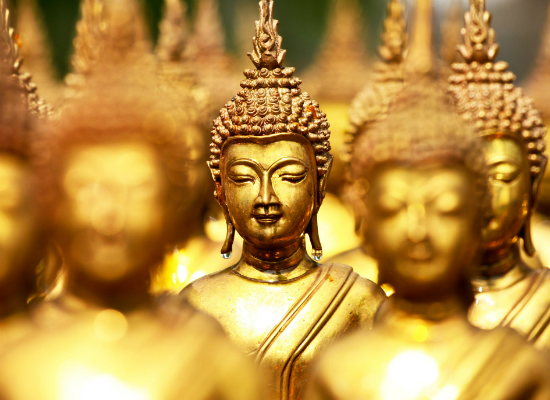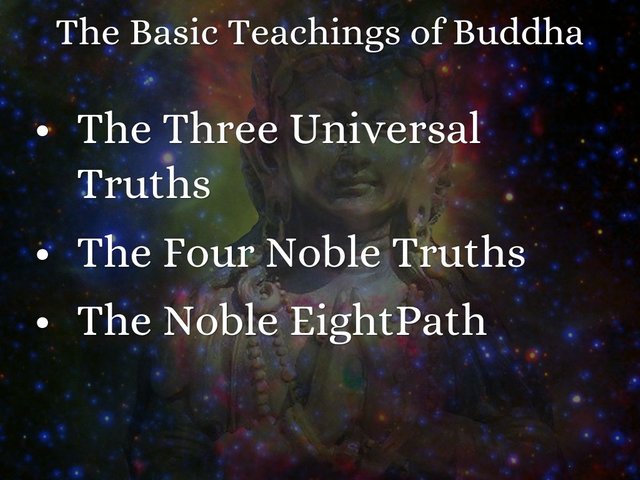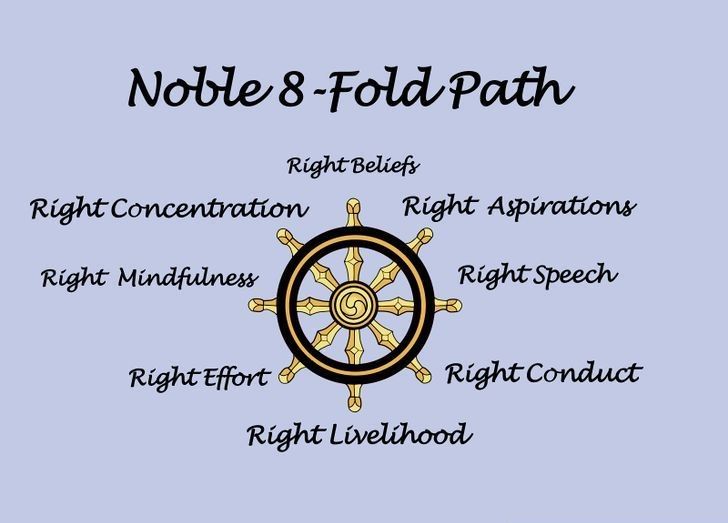
There is no concept of personal God in Buddhism. There is no concept of praise, worship or prayer of a divine being in Buddhism. No concept of judgment day, forgiveness, redemption or hope of going to heaven. It is actually an ethical way of life or we can consider it a moral philosophy.

Buddhism can be called as “heresy of Hinduism”. During the 6th Century B.C. Buddhism was fonded by Siddhartha Gautama, who was a Hindu. Due to his experience of suffering from four kinds of sufferings in a day, he started to find out the source of these suffering and how to eliminate them. He for the sake of attaining enlightment sat under a tree and vowed that he will not rise again until he will get that. Soon after some time, while he was doing this he was entitled as “Buddha” which means “enlightened one”. After then he started teaching others the basics of Buddhism which comprised of “The Four Nobel Truths”.

Four Basic of Buddhism
Life consists of sufferings
We suffer because we desire those things that are impermanent. (this is absolutely in the center of Buddhism: the belief that desire is the cause of all sufferings)
The way to liberate from all sufferings is by eliminating desires.
Desires can be eliminated by “Eight-Fold Path”.
What is Eight Fold Path of Buddhism?

The first two steps in Eight- Fold Path are fundamental to others. Right Understanding is the first one, which means that individual doesn’t actually exist and whole of the universe is impermanent and illusionary. Right Thought means; renouncing all attachment to desires and thoughts for oneself, even though self doesn’t exist.
Right Speech, Right Action, Right Livelihood, Right Efforts, Right Awareness, and Right Meditation. One of the most vital and important thing in Buddhism is Ethical conduct. These ethical codes even ask followere to stop from stealing, lying, drinking or immorality and also to refrain oneself from taking any life (even life of an ant or cocrach in your house).
Nirvana is the ultimate goal of Buddhism, and Eight-Fold Path is a way to move towards it. Nirvana is not like heaven, it is the state of person where one’s essence will be extinguished like a flame of a candle, and this will be a mark to end of desire which will end sufferings.
Samsara is another aspect of the Buddhism, which explains cycle of birth, death and rebirth. But this is different from reincarnation concept of Hinduism. According to Buddhism, there is no self to continue from one life to the next. Karma is one more important concept in Budhhism, it says that, “You will reap, what you sow and your Karma will follow you through out the cycles of Samsara”.
** Here an important thing to note is; there is no consistency here, as according to Samsara there is no life to the next, but Karma does.
According to Buddhism, “There are many ways to the top of the mountain, so there are many ways to God.”
Source: My own blog site : http://genlearnin.com/